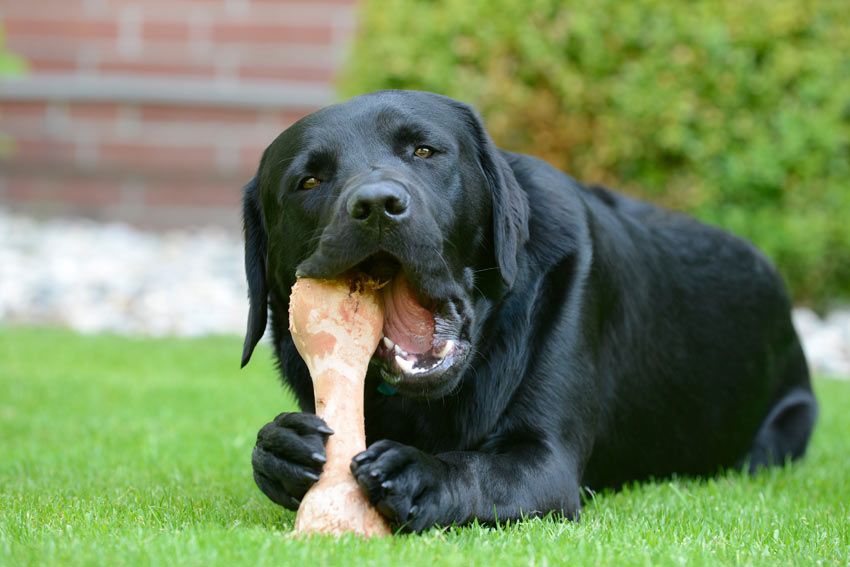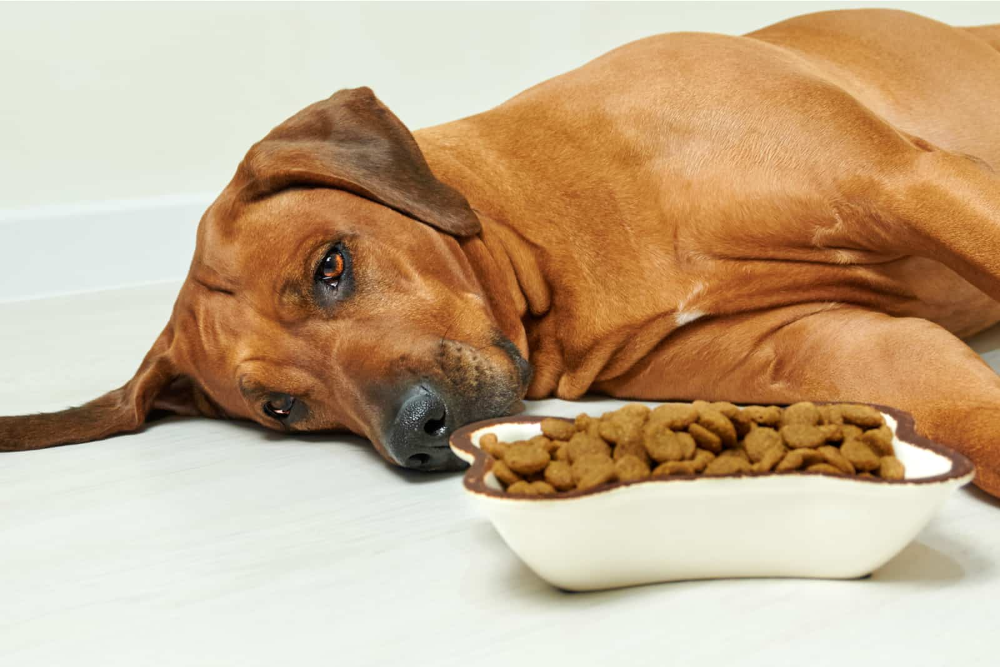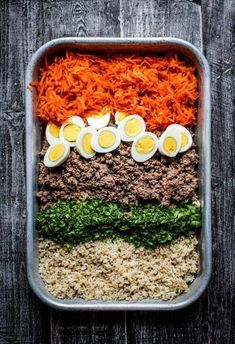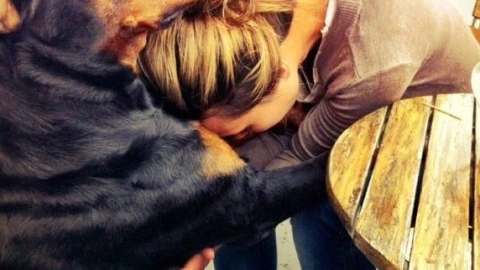Dog / Detail
A Dog's Dinner: Navigating Canine Nutrition
Jonathan Bennet | 14 August 2024 | 18:05
Dogs, much like humans, have individual dietary needs and sensitivities. While they might not be as vocal about their culinary preferences, their bodies certainly have their own way of communicating discomfort.
Let's delve into the world of canine digestion and discover how to nourish your furry friend without upsetting their stomach.

Canine Digestive Systems: More Sensitive Than You Think?
It might seem surprising, but many dogs have more sensitive digestive systems than humans. Their bodies are finely tuned to process certain nutrients, and any deviation from their normal diet can lead to digestive upset. Factors such as breed, age, and overall health can influence a dog's sensitivity.

Common Signs of an Upset Stomach
If your dog is experiencing digestive issues, you might notice the following symptoms:
- Diarrhea
- Constipation
- Vomiting
- Loss of appetite
- Excessive gas
- Lethargy
While occasional digestive upsets are normal, persistent problems require a visit to the vet to rule out any underlying medical conditions.

Protecting Your Dog's Digestive Health
Gradual Diet Changes: Introducing new foods or switching between different brands abruptly can upset your dog's stomach. Transition to a new diet gradually over several days.
- Quality Dog Food: Invest in high-quality dog food that contains easily digestible ingredients. Avoid foods with excessive fillers or artificial additives.
- Portion Control: Overfeeding can lead to digestive issues. Stick to recommended portion sizes and avoid free feeding.
- Regular Exercise: Regular physical activity aids digestion and helps maintain a healthy weight.
- Fresh Water: Ensure your dog always has access to clean, fresh water.
- Avoid Human Food: While it might be tempting to share your dinner, many human foods are harmful to dogs. Chocolate, grapes, onions, and garlic are particularly toxic.

Human Food: A Risky Treat
While it's tempting to share your food with your furry friend, it's generally not recommended. Many human foods contain ingredients that can be harmful to dogs. Even seemingly innocuous foods like milk can cause digestive upset in some dogs.
If you do decide to share human food, stick to plain, cooked chicken or rice in small quantities. Always consult your vet for guidance.

Alternative Feeding Options
For dogs with sensitive stomachs, there are alternative feeding options to consider:
Homemade Diets: With guidance from a vet, you can prepare homemade meals for your dog using high-quality ingredients. This allows you to control exactly what your dog is eating.
Certain dog breeds are more predisposed to digestive sensitivities than others. Understanding these breed-specific tendencies can help owners provide tailored care and nutrition.

Small Breeds with Big Issues
- Yorkshire Terriers (Yorkies): Known for their dainty appearance, Yorkies can have surprisingly sensitive stomachs. Conditions like pancreatitis and hemorrhagic gastroenteritis (HGE) are more common in this breed.
- Miniature Schnauzers: These lively dogs can also be prone to pancreatitis and HGE. Additionally, hyperlipidemia (high blood fat) can increase their risk of digestive issues.
- Chihuahuas: As small breeds, Chihuahuas can experience digestive upset due to their sensitive nature. They can be prone to conditions like pancreatitis and inflammatory bowel disease (IBD).

Larger Breeds: Unexpected Sensitivities
- Labrador Retrievers: Despite their hearty image, Labradors can suffer from food sensitivities and digestive upset. Bloat is also a serious concern for deep-chested breeds like Labradors.
- Golden Retrievers: Similar to Labradors, Golden Retrievers can experience digestive issues. They are also prone to food allergies and sensitivities.
- Great Danes: As giants of the canine world, Great Danes can have sensitive stomachs. They are also at risk for bloat, a life-threatening condition.

Other Breeds to Watch
- Poodles: While known for their hypoallergenic coats, Poodles can still experience digestive upset.
- Cocker Spaniels: These affectionate dogs can be prone to food sensitivities and pancreatitis.
- Irish Setters: Active and energetic, Irish Setters can develop digestive issues, including bloat.

A Note of Caution
It's essential to remember that these are general tendencies, and not all dogs of these breeds will experience digestive problems. Individual variations exist, and other factors like diet, lifestyle, and overall health also play a role.
If your dog is showing signs of persistent digestive upset, consult with a veterinarian for a proper diagnosis and treatment plan.
By understanding the specific needs of your dog's breed and working closely with your vet, you can help manage their digestive health and ensure a happy, healthy life.
- Hydrolyzed Protein Diets: These diets break down proteins into smaller, more easily digestible particles. They can be beneficial for dogs with food allergies or sensitivities.
- Limited Ingredient Diets: These diets contain a minimal number of ingredients, making it easier to identify potential allergens.
Remember, the best diet for your dog is one that supports their overall health and well-being. If you have concerns about your dog's digestive health, consult with a veterinarian for personalized advice.
Related
-

The Healing Power of Dogs: How Canine Therapy is Revolutionizing Mental Health and Boosting Positive Energy in Humans
Dog14 November 2024
-

A Pawsitive History: Dogs of Nuremberg
Dog09 November 2024
-

The Role of Oxytocin in the Human-Dog Bond: The Science Behind Our Deep Connection
Dog06 November 2024
-

Beyond the Beach: Jamaica's Dog Lovers
Dog29 October 2024
-

A Dog's Delights: Homemade Snacks for Our Furry Babies, Recipes Included!
Dog29 October 2024
-

A Dog's Disorientation: Understanding Your Dogs' Wanderlust
Dog29 October 2024
Popular
-

-

A Pawsitive History: Dogs of Nuremberg
09 November 2024 -

-

Beyond the Beach: Jamaica's Dog Lovers
29 October 2024 -
